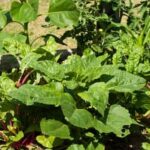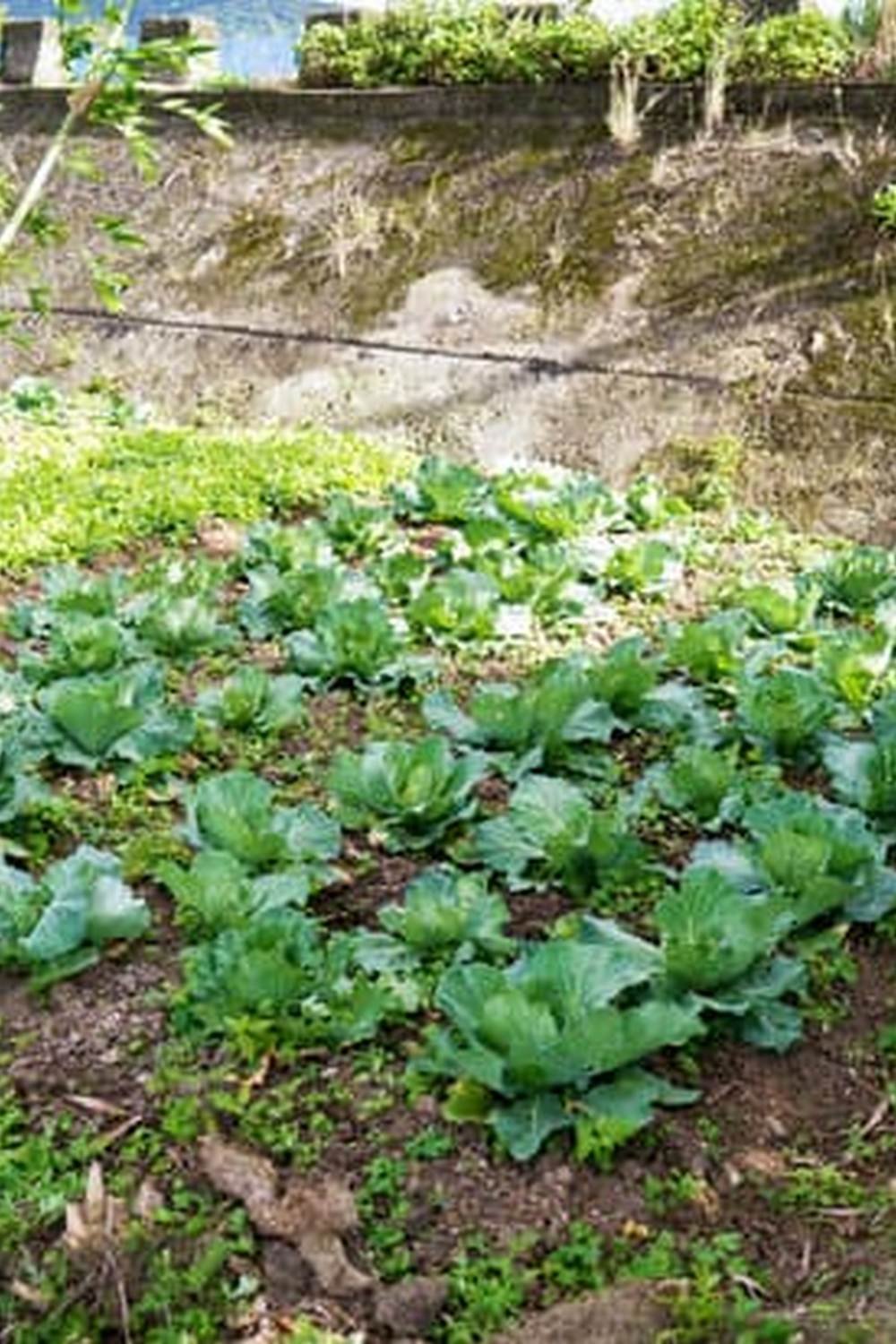Are you interested in starting a raised bed vegetable garden but not sure where to begin? Raised bed vegetable gardening for beginners in the UK can be a rewarding and productive way to grow your own fresh produce, even with limited space. In this article, we will guide you through the process of getting started with raised bed gardening, from choosing the right location and materials to planting, caring for, and harvesting your vegetable garden.
Raised bed vegetable gardening involves growing plants in soil that is higher than the ground level, contained within a structure made of wood, metal, or other materials. This method offers several advantages for beginners in the UK, including better soil drainage, improved soil quality, and easier weed control. With the right guidance and knowledge, anyone can successfully cultivate a thriving raised bed vegetable garden.
In the following sections, we will discuss the benefits of raised bed gardening for beginners in the UK, offer tips on choosing the right location for your raised bed, provide guidance on building your raised bed with the necessary materials and tools, as well as selecting suitable vegetables to plant.
Whether you have limited outdoor space or simply prefer a more organized and manageable gardening approach, raised bed vegetable gardening is an excellent option for beginners looking to grow their own fresh produce.
Benefits of Raised Bed Vegetable Gardening for Beginners in the UK
When it comes to beginner vegetable gardening in the UK, raised beds offer several benefits that make them an attractive option for those just starting out. These benefits include improved soil quality, better drainage, and easier maintenance.
Improved Soil Quality
One of the key advantages of raised bed vegetable gardening for beginners in the UK is the ability to have greater control over the soil quality. By using a specific mix of soil, compost, and other organic matter, gardeners can create the ideal growing environment for their plants. This is especially beneficial for beginners who may not have experience with amending and improving their existing garden soil.
Better Drainage
In the UK, where heavy rainfall is common, proper drainage is essential for successful vegetable gardening. Raised beds allow for better drainage compared to traditional in-ground gardens. This means that excess water can easily drain away from the bed, preventing waterlogged soil and reducing the risk of root rot in vegetable plants.
Easier Maintenance
For beginners, raised bed gardening offers the advantage of easier maintenance. The elevated nature of raised beds makes them more accessible, reducing strain on the back and knees during planting, weeding, and harvesting. Additionally, because they are contained spaces, raised beds tend to require less weeding and are easier to protect from pests.
Choosing the Right Location for Your Raised Bed
When it comes to raised bed vegetable gardening for beginners in the UK, choosing the right location for your raised bed is crucial for the success of your garden. The first step is to find a spot in your garden that receives at least 6-8 hours of sunlight each day. Vegetables thrive in sunlight, so it’s important to place your raised bed in a sunny area.
Consider Accessibility
Another important factor to consider when choosing the location for your raised bed is accessibility. You’ll want to place your raised bed in an area that is easy to access for planting, weeding, and harvesting. Avoid placing it too close to fences or walls that may make it difficult to reach all sides of the bed.
Soil Quality and Drainage
It’s also essential to consider the quality of soil and drainage in the chosen location. If possible, select an area with well-draining soil as waterlogged soil can lead to root rot and other issues. Additionally, consider doing a soil test to determine the pH level and nutrient content of the soil in the selected location. This will help you decide whether you need to amend the soil before building your raised bed.
By carefully considering these factors when choosing the location for your raised bed vegetable garden, you can set yourself up for success and ensure that your plants have the best possible environment to grow and thrive.
Building Your Raised Bed
When it comes to building your raised bed for vegetable gardening, there are a few key materials and tools that you will need to ensure that your project is successful. The first step in this process is to decide on the type of material that you want to use for the construction of your raised bed.
The most common choices for materials include wood, bricks, or even recycled plastic. Each material has its own set of advantages and disadvantages, so it’s important to consider factors such as longevity, cost, and aesthetic appeal before making your final decision.
In addition to selecting the right material for your raised bed, you will also need a few essential tools to get the job done. Some of the basic tools that you’ll need include a saw for cutting lumber or other materials, a drill or screwdriver for assembly, and a level to ensure that your raised bed is even and sturdy.
Depending on the design of your raised bed, you may also need additional tools such as a hammer, nails or screws, and a shovel for preparing the ground where your raised bed will be situated.
For beginners in the UK who are new to raised bed vegetable gardening, it can be overwhelming to figure out which materials and tools are best suited for their specific needs. However, with some research and planning, building a raised bed can be an enjoyable and rewarding experience. By carefully selecting the right materials and tools, you can set yourself up for success with your new venture into raised bed vegetable gardening.
Selecting the Best Vegetables for Your Raised Bed
When it comes to selecting the best vegetables for your raised bed vegetable gardening for beginners in the UK, there are a few factors to consider. You want to choose vegetables that are well-suited for the climate and growing conditions in the UK, as well as ones that are relatively low-maintenance for novice gardeners. Here are some top options to consider for your raised bed:
- Tomatoes: Tomatoes thrive in a raised bed environment and can be grown successfully in the UK. Varieties such as ‘Moneymaker’ and ‘Gardener’s Delight’ are popular choices.
- Carrots: Carrots do well in raised beds with loose, well-draining soil. Varieties like ‘Nantes’ and ‘Chantenay’ are great options for beginners.
- Peas: Peas are a cool-season crop that can be grown in raised beds. ‘Kelvedon Wonder’ is a good variety to start with.
- Lettuce: Lettuce is easy to grow in a raised bed and there are many varieties to choose from, including ‘Butterhead’ and ‘Romaine.’
When selecting vegetables for your raised bed, it’s important to consider the amount of sunlight your garden will receive, as well as the depth of the bed. Some vegetables, like root crops, require deeper soil, while others may thrive in shallower beds.
Additionally, it’s a good idea to select a mix of vegetables that mature at different times throughout the growing season. This will allow you to have a continuous harvest and make the most of your raised bed space.
Remember that experimentation is key when starting out with raised bed vegetable gardening. Don’t be afraid to try different varieties and see what works best for your specific garden conditions.
Lastly, don’t forget about companion planting – certain vegetables grow better together and can help deter pests or enhance each other’s growth.
By considering these factors and selections of vegetables, you can set yourself up for successful raised bed vegetable gardening as a beginner in the UK.
Planting and Caring for Your Vegetable Garden
When it comes to planting and caring for your raised bed vegetable garden, there are a few key steps to keep in mind. First, you’ll want to make sure you properly prepare the soil in your raised bed before planting. This means loosening the soil and adding any necessary amendments, such as compost or fertilizer, to ensure the best possible growing conditions for your vegetables.
Once your soil is prepared, it’s time to start planting. When selecting which vegetables to grow in your raised bed, consider factors such as the amount of sunlight they require and their water needs. Some popular options for raised bed vegetable gardening for beginners in the UK include tomatoes, cucumbers, carrots, and lettuce.
As your vegetables begin to grow, it’s important to regularly water and monitor them for any signs of pests or diseases. Raised beds can offer better drainage and fewer weed problems compared to traditional gardens, but it’s still important to stay on top of maintenance. Additionally, consider using natural pest control methods and organic fertilizers to keep your garden healthy without harmful chemicals.
Finally, don’t forget about proper spacing between plants in your raised bed. Overcrowding can lead to stunted growth and poor air circulation, so be sure to follow spacing recommendations for each type of vegetable you’re growing. By taking these steps to plant and care for your vegetable garden, you’ll be on your way to a successful harvest in no time.
- Prepare the soil by loosening it and adding necessary amendments
- Choose vegetables that suit the sunlight and water conditions of your location
- Water regularly, monitor for pests and diseases, use natural pest control methods
- Ensure proper spacing between plants for optimal growth
Common Mistakes to Avoid as a Beginner
When starting with raised bed vegetable gardening for beginners in the UK, it’s important to be aware of some common mistakes that can hinder your success. One of the most significant errors is overcrowding your plants.
It can be tempting to plant as much as possible in the available space, but overplanting can lead to stunted growth, poor airflow, and an increased risk of disease. Be sure to follow spacing guidelines for each type of vegetable you plant and avoid overcrowding.
Another mistake to avoid is not paying attention to watering. Raised beds can dry out more quickly than traditional gardens, so it’s essential to monitor soil moisture regularly and water as needed. On the other hand, overwatering can also be detrimental, leading to root rot and other issues. Finding the right balance may take some trial and error, but it’s crucial for the health of your plants.
Finally, neglecting soil health is a common mistake made by beginners. The quality of your soil directly impacts the success of your vegetable garden. Before planting, make sure to amend your soil with organic matter and nutrients as needed. Regularly testing and maintaining the pH level of your soil is also important for the long-term health of your plants.
| Common Mistakes | Impact |
|---|---|
| Overcrowding plants | Stunted growth, poor airflow, increased risk of disease |
| Improper watering | Dry out or overwatering leading to root rot and other issues |
| Neglecting Soil Health | Directly impacts the success by amending with organic matter and monitoring pH levels |
Tips for Successful Raised Bed Vegetable Gardening in the UK
Raised bed vegetable gardening for beginners in the UK can be a rewarding and enjoyable experience. To ensure successful results, there are a few tips to keep in mind. One of the most important factors to consider is the type of soil you use in your raised bed. It’s essential to use a high-quality soil mix that is well-draining and rich in organic matter. This will provide your vegetables with the nutrients they need to thrive.
Another tip for successful raised bed vegetable gardening in the UK is to pay attention to the spacing of your plants. Overcrowding can lead to competition for resources and poor growth. Be sure to follow the recommended spacing guidelines for each type of vegetable you plant. Additionally, incorporating companion planting can help maximize space and promote healthy growth by pairing compatible plant species together.
It’s also crucial to stay on top of watering and maintenance. Raised beds tend to drain water more efficiently than traditional garden beds, so it’s important to monitor moisture levels regularly and water as needed. Additionally, keeping up with weeding and removing any pests or diseased plants promptly will help maintain a healthy growing environment for your vegetables.
| Tips | Details |
|---|---|
| Soil Quality | Use high-quality, well-draining soil rich in organic matter |
| Plant Spacing | Follow recommended spacing guidelines for each type of vegetable; consider companion planting |
| Watering and Maintenance | Monitor moisture levels regularly, water as needed, and keep up with weeding and pest control |
Harvesting and Maintaining Your Raised Bed Garden
In conclusion, raised bed vegetable gardening for beginners in the UK offers a multitude of benefits, making it an attractive option for those looking to start their own home garden. From maximizing space and soil quality to reducing back strain and providing better drainage, raised bed gardening is a practical and rewarding choice for new gardeners.
By choosing the right location, building the bed with the proper materials, selecting the best vegetables, and following essential tips, beginners can create a successful and thriving raised bed garden.
As you continue to maintain your raised bed garden, it’s important to keep an eye on regular maintenance tasks such as watering, weeding, and monitoring for pests. Harvesting your vegetables at their peak ripeness ensures the best flavor and nutritional value. Additionally, proper winter maintenance will help prepare your garden for the next growing season.
In summary, raised bed vegetable gardening offers beginner gardeners in the UK an accessible and efficient way to grow their own produce. By following the guidelines outlined in this article and applying best practices for planting and maintaining your garden bed, you can enjoy a bountiful harvest of fresh and healthy vegetables throughout the growing season. Happy gardening.

If you’re looking to get into vegetable gardening, or are just looking for some tips on how to make your current garden better, then you’ve come to the right place! My name is Ethel and I have been gardening for years. In this blog, I’m going to share with you some of my best tips on how to create a successful vegetable garden.





